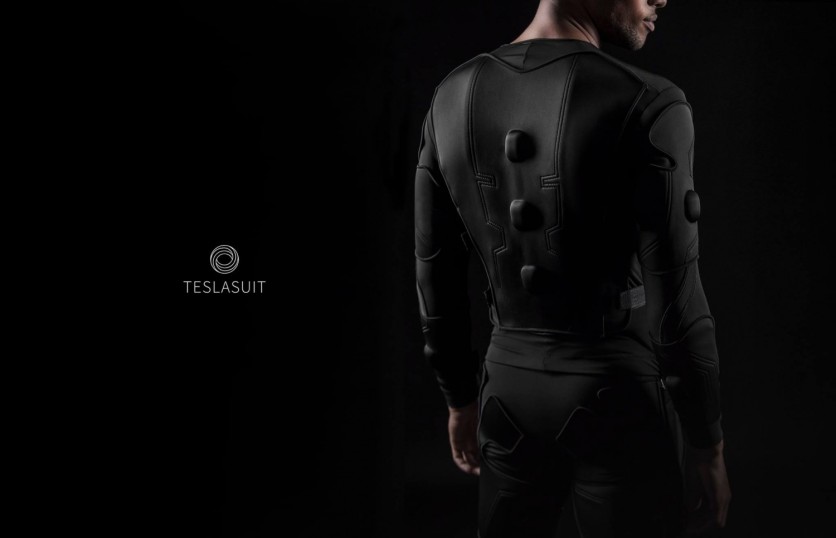
With CES on the horizon, tech companies are starting to announce what they're bringing to the largest tech trade show of the year. Teslasuit, who developed a full-body haptic feedback suit, is introducing a new product during the show. Simply known as the "Teslasuit Glove," this product promises to allow users to feel digital textures with its haptic feedback technology. It also gathers the biometric data of the user.
The Teslasuit Glove is marketed towards professional applications in fields such as education, medicine, architecture and engineering, and others. It uses a combination of several technologies to offer its users the feeling of actually touching digital objects. The glove also tracks the hand in full 3d space, allowing for more precise tracking. Teslasuit also promises that the glove can be paired with their Suit to achieve complete tracking of a person in VR space.
The glove is competing against other professional VR devices such as the Manus VR and the HaptX gloves. While it is not as processed when it comes to feeling like the HaptX gloves, it distinguishes itself by the wide array of sensors aboard the glove. This makes it a better product for applications such as professional training where gathering, interpreting, and receiving feedback is important. Unlike the HaptX, which currently only tracks the fingertips, the Teslasuit Glove promises to track the whole hand and wrist as well, allowing developers to widen the scope of their software to track these entire hands.
About Teslasuit
Teslasuit was one of the companies that rode the VR hype train earlier on. They are most well known for their Kickstarter, which promised a full-body suit that was tracked in VR Space. However, since the consumer demand for VR died down after a bit, Teslasuit decided to cancel the Kickstarter and instead focus on selling to businesses and other professional software developers. Their Teslasuit has won numerous awards. In 2019, it won the best VR/AR product at CES 2019 and the Red Dot award for best in industrial design.
The Hype of VR
While the Virtual Reality boom during the 2010s has died down a bit, further developments in the field are continuously ongoing. VR's pricey entry point did not necessarily entice a lot of consumers to go deep with the idea, especially since early VR headsets required a beasty computer, on top of the $500-600 a person would drop on a brand new VR headset. While cheaper options such as PlayStation's PSVR, Google's project Daydream, and Oculus's GO did allow a more affordable (although weaker) entry point, the technology can still be considered far from the mainstream when it comes to consumer electronics.
However, there are other fields where VR began to bloom. Fields such as engineering and medicine have started to realize the potential of VR in training personnel in their fields. Engineers and architects can create 3D models and use virtualization programs to see their work firsthand before a single brick is laid down. Doctors training to be surgeons can now practice in VR situations before operating on a live patient.
However, this does not mean that consumer VR has died down. Valve, Oculus, and HTC have all released new consumer VR headsets this year. Valve has also recently announced Half Life: Alyx, the first game in the series in almost 15 years. Half Life:Alyx promises to be the first AAA video game title to take full advantage of the VR system and has renewed interest in VR gaming.
SEE ALSO: Left 4 Dead VR May Be Valve's Follow-up To Half-Life: Alyx




